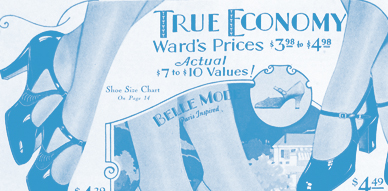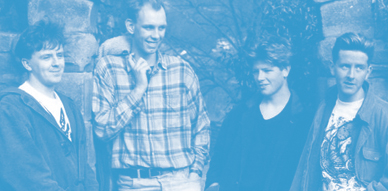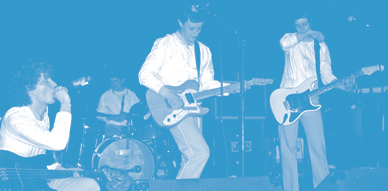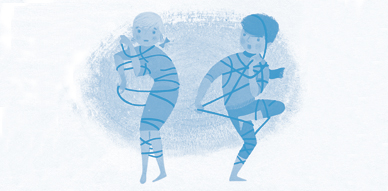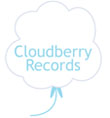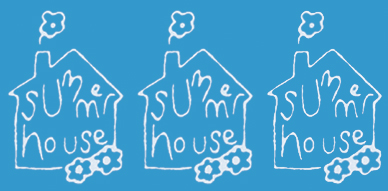
Thanks again to William Jones for another fantastic interview! Get all Summerhouse releases here!
++ On the early days of Summerhouse Records you were working as a Music Officer, what did this job consist of?
It was my first ‘career’ job. I’d worked as a kitchen porter and a barman to fund my postgraduate year and been a temp during college holidays, but this was the first job I’d actually wanted to do.
I went up to Stockton-On-Tees for an interview at the Dovecot Arts Centre in early 1982, and it was grim! This was in the depths of a very big recession, it was a cold, foggy February morning, and I thought ‘this is what I want to do’. I stayed nearly eight years.
The job was perfect for me. It involved programming – promoting pop, folk, jazz, classical, contemporary, world music – for the Arts Centre, running classes, courses and workshops, and teaching. We had jazz/rock workshops, a youth jazz orchestra, drum workshops, a month-long composer residency with Graham Fitkin involving two newly commissioned works, and a really thriving music programme. I also ran music groups in singing, string playing, did music workshops for adults with learning disabilities, and taught guitar to small groups. Considering there was no music programme there before, the job was like a blank sheet of paper for me to write something myself. My brief was to use music and the Centre’s two performance spaces to get people, especially younger audiences, through the doors. And how we did that!
I absolutely loved it. It was exhausting, usually 80-hour weeks, but incredibly satisfying. People I’ve met since then, and at the time, told me that the Centre and my work made a big difference to the cultural life of the area. That’s worth a lot. In any job there’s always office politics and frustrations to contend with, and eventually I left because I felt I was ready to manage a whole venue myself. Although I’ve probably become more skilled and knowledgeable since then, it was my favourite job and the best time of my life.
++ A question that I’m myself always curious, is how much has pressing records changed in the last twenty years? Is it easier now or more difficult? Has prices changed a lot? What about turnout times?
It has improved in almost every way – cheaper, quicker, easier, although we’re no longer involved with vinyl. Digital design and printing, and mastering, has made things much smoother, more accurate and quicker, so now turnaround can be as little as 7-10 days. Obviously you need to allow a longer lead time to get the thing marketed and on sale. 20 years ago you could usually count on something going wrong somewhere along the way – often a test pressing of the record would be faulty and you’d have to go 15 rounds with the mastering room and the pressing plant sorting out whose responsibility it was. The only thing that’s worse now is that it’s so much harder to sell the bastards!
++ You launched with three singles, one from Friends, one from Whirlpool Guest House and one by the 4,000,000 Telephones. I know how you met Carl, but what about the Lincoln band? Did they play in Stockton-on-Tees maybe?
In my job my antennae were highly attuned to new up-and-coming bands, locally and around the country, and Melody Maker, the old weekly music paper, had made 4,000,000 Telephones one of their bands ‘most likely to’ at the end of 1985 for the coming year. I got their LP sent to me and booked them at the Arts Centre. The album was great, and the band live were absolutely breathtaking. I fell in love with them immediately. They were unlike anything I, or you, have ever seen. Six composers, four of them singers, very fine players, swapping instruments, going out into the audience, and playing music which they themselves claimed often emptied rooms in five minutes, winning over a very tough Stockton audience with some quite avant-garde stuff. I once read a review describing rap concerts as ‘two blokes walking round a stage with microphones shouting at each other’. And that’s partly what the Telephones were, but so much more of course, with far more visual interest, a totally live, vibrant and original band. Richard, one of the singers, was reminiscent of a very angry bank manager, striding around the stage in white shirt and braces, and Carl, the other lead singer, very young and charming, with a brilliant line in surreal comments. Their manager Pearl was great to deal with – very efficient and totally straight, both of which are unusual qualities in this business. I heard that she used to freak out those silly A & R men in London, who couldn’t cope with a dress sense and manner apparently based on a church fete from the 1950s, politely requesting a cup of tea rather than a line of the finest Colombian. The band must have been a nightmare to organise and manage, and she did a brilliant job.
I’ve often wondered whether my memory isn’t clouded by nostalgia, but three years ago we decided to release that original album, which had never been on Summerhouse, as a CD on our label at last. The band reformed to promote it, and launched it at a concert in the same hall in the same college in Lincoln where my group had supported them back in 1987. It was a very eerie experience, but amazingly, on minimal rehearsal, the magic was still there, and a chemistry that probably only ever ignites when those particular people are on the same stage at the same time. It was a great night. Then they played at a Summerhouse night at the Spitz in London, and a friend of mine had exactly the same reaction I did in 1986, completely bowled over by them. Whatever it was they had, they’ve still got it!
++ Why did you choose to name the label Summerhouse? Was there any other label that somehow influenced the aesthetics of yours? And who came up with the lovely house drawing for the logo?
I had a shortlist of names for the label, I can’t remember any of the other options except that they were pretty embarrassing. I remember one of our criteria was that it couldn’t be something you’d feel silly saying when you answered the phone – in retrospect a very good branding approach. It was just one of those flashes, and the name seemed to sum up many qualities – brightness, optimism, positivity – that we wanted in the music. It’s also the name of a village near Darlington, but I didn’t know that at the time! There was no record company who influenced us, although we often envied the cachet of fashionability that attached itself to some other labels, we couldn’t understand how!
The image was by a young graphic design company in Middlesbrough called Studio 8. I’m glad you like it. It’s been with us since 1986, and we’ve occasionally looked at changing it but always ended up thinking ‘if it ain’t broke…’ The house certainly ain’t broke, even if some of the people inside it are.
When we launched the label the key people were myself and Carl Green. Carl’s involvement was more moral support and a nice line in colourful insults to negative reviewers, rather than practical or financial input. We used to plot our world domination strategy over very slow pints of lager when I’d go out to help him with his mobile disco in working men’s clubs in Middlesbrough. Being fairly naïve about the business we felt we needed a London presence and invented a kind of benefactor and shadowy ‘sleeping partner’ called Derek. In fact he did so much sleeping he was never actually awake. One local newspaper feature described him as ‘the mysterious Derek’ and he certainly was – especially to us.
We also felt we need a third band, and hadn’t yet signed 4,000,000 Telephones, and I’ve still got one of our early letterheads with the names Friends, Whirlpool Guest House and Breaking Away who, like Derek, were fictional. We hadn’t thought ahead to what would happen if someone actually wanted to hear something by Breaking Away, so we discreetly dropped them. They understood. At least they returned later as the title of a song on the first Friends album!
++ Was it easy to get distribution with Probe Plus and Red Rhino? Was it easy to deal with them? Why do you think distributors ultimately folded?
Both were part of an independent distribution network called the Cartel. Probe Plus were fairly easy to get on to, but they were very candid that they didn’t think they’d sell any records. They were right – we didn’t! In fact for a long long time I wondered how any label anywhere managed to sell more than 27 copies of their output.
I can’t remember how we came to part with Probe Plus, I think it was probably just a two-single deal. Red Rhino showed an interest when we signed 4,000,000 Telephones, having already distributed their self-produced debut album which had done quite well for them, particularly in Germany. So they were reasonably impressed when we went to meet them with a good package and release schedule of three bands including the Telephones.
The thing with Red Rhino was that it opened up our eyes to the fact that our market wasn’t really the UK, it was ‘the abroad’. Until then we’d never considered that anyone in Japan, Australia, the USA would want to buy our records. After all, why should they? We’d never been there. We hadn’t encountered this word of mouth thing, and assumed that if we weren’t getting covered in NME, Melody Maker or Sounds, then we weren’t getting covered anywhere else. It was when we got our first sales statement including Let’s Get Away From It All, showing that we’d shifted 1,000 copies just like that – that’s when I thought, hell, where are these records going? Again we were very naïve, really – never thought they were selling just because they were very good! That’s when we realised that the UK was just a small part of our total market, and since we started it’s only accounted for 15% of our sales.
++ Then you signed Rumblefish who, in my opinion, recorded their best output on your label. How did you meet and made them part of your label and how did you feel about Jeremy’s band going to East West? Did you give him any advice before leaving to a big label?
We approached them when their label Pink decided to call it a day, and they made a commitment to Jeremy to get him set up with a new label. Rumblefish had just played at the venue where I worked, and I went for them. We were their best offer, possibly even their only offer.
There was a big gap between their two singles due to the collapse of Red Rhino, and we and the band knew that if we could just get the second single out then it would be the last that we could do with them, as we were out of money and had to cut the label right back to Friends and Whirlpool Guest House again. After the second single we didn’t really keep in touch, so I had no advice to give Jeremy, who obviously didn’t need it anyway. The first I heard they’d gone to East West was when I bought their album in a bargain bin at Tower Records at Piccadilly. We made contact again when I wanted to put the two singles (and their Pink Label single) on a compilation, 1234: The Early Singles. In fact I think I tracked him down through the Friends Reunited website. I heard that the East West deal had been one of those typical major label experiences, where they record the album and aren’t happy with it, do it again, and just as it’s released they are dropped. To Jeremy’s credit he had a second shot as Low Art Thrill and got signed to Island. If I’d had anything to say it would just have been ‘all the best’ and, in the words of Abba, ‘thank you for the music’.
++ The other band that signed around the same time was Quinn The Eskimo. I have to say that I’ve never heard them and whenever I see their record in eBay is a bit too expensive for me! Would you care telling me more about them? Will there be any retrospective CD for them as well?
Quinn The Eskimo were from Newcastle and were recommended to us by Red Rhino, who gave me a tape of their album, which was fully recorded but unreleased as they had no label. It was acoustic indiepop/rock, and if you want a comparison I’d relate it to Miracle Legion who I thought were great. I liked it and thought it was just right for the label. Again it got caught up in the Red Rhino debacle, and we never got back the unsold copies to remarket.
We didn’t keep in touch and I don’t know what happened to them. No, there won’t be any CD.
++ When Red Rhino folded, how did you manage to distribute Summerhouse? Was there a moment that you thought, “this is it”? I’m very glad you’ve continued with the label I have to say even though it seems it’s been a very bumpy adventure!
I still think ‘this is it’ at some point most weeks! What happened with Red Rhino was that after the second Friends single Far And Away we moved on to a ‘manufacturing and distribution’ deal with them. If a label showed promise, Red Rhino would advance the money to print and press the next record and recoup the outlay from initial sales until they’d recovered their costs, after which you’d get paid as per your standard deal. The benefit to labels was that they could release records much more quickly, as they didn’t have to wait until each new release had moved into profit before being able to afford the next one – a bit like living on credit really, and we all know what happens there! The benefit to the distributor was presumably that it gave them more product to distribute – so long as it was all selling. I guess what happened was that Red Rhino overstretched themselves, and all of these releases they’d advance-funded weren’t actually recouping their costs. Either way, Red Rhino went into administration, and since some of our records were a long way from recouping Red Rhino’s money they went to the receivers and were sold off very cheaply, and we never actually got our hands on some of our own releases. That’s why, to answer your earlier question, I think the distributors folded.
At that point we decided we never wanted to be in hock to a distributor again, and radically trimmed down the label to what was actually profitable and a release schedule that was slower but more manageable. Red Rhino resurfaced in the same place with the same people but a different name, APT, and we went with them, this time on a straight distribution deal. They then merged with Revolver, and finally became Vital, one of the big two indie distributors in the UK. The inevitable happened. At some point in the mid 1990s they culled a lot of their smaller indie labels like us. I still remember the hilarious and pathetic conversation they had with us. They didn’t even have the guts to drop us properly. Our label manager said something like ‘Er, we just feel, like, it isn’t really, like, going in the direction…um, we just think…’ and so on, blah blah blah. I actually said ‘So you want to drop us’ and they said ‘Well, I suppose, yeah…’ So we pretty much even had to drop ourselves for them!
We’ve subsequently been with three more distributors. The first were that lethal combination, incompetent and dishonest, and we ended up taking them to court on grounds of lack of sales statements and payment. We won and got our stock back, but the cost of enforcing payment, when they had no money, was prohibitive. Of the other two, one dropped us (again) and the other gave up on distribution completely.
We now haven’t been distributed for a couple of years and don’t mind at all! In fact I think the whole distribution business is near the end of its natural life, and we don’t need it anyway. No major record shop is going to stock our product, and we can deal quite effectively with the key independent stores on a sale-or-return basis for new releases. The distributors and major stores occasionally see a brief ray of sunshine as the light fades. Every so often there’s a news story about vinyl coming back into fashion. If it is – someone please tell our customers. And every so often they get a bit of an unexpected boost and sales surge when something big happens. But after all, Michael Jackson can only die once – twice at the most.
Yes, it’s certainly been a bumpy ride, and I’ve fallen off many times along the way.
++ How supportive was the fanzine scene of the late 80s for the Summerhouse labels and bands?
It was very supportive, and I was often touched by people who would devote their time to making a single fanzine just about us or including us, which happened a few times. Some of these people became friends and have kept in touch over the years. I think the fanzine spirit is still there, sometimes even in the original print medium, sometimes as blogs or websites. It’s become even more important as the number of music weeklies has shrunk, and those that remain focus so much more on established artists.
I can’t say that it ever seemed to result in extra sales, but then that wasn’t the objective of the person producing the fanzine. Having been a dedicated fan of bands and musicians myself I understand and sympathise with the feeling behind them, and always appreciate anyone who makes that kind of effort and feels that strongly about music.
++ Now that Whirlpool Guest House was Shandy Wildtyme and playing live, were there any gigs together with Friends? I mean, were there any Summerhouse only gigs? 
There were a few. After we left Stockton we were invited back a couple of times to headline gigs at the Arts Centre where I’d worked. One of them was the best we’ve ever played. Having been a bit ramshackle live in our early days I think we surprised people when we went back sounding a lot more assured and solid. We played support on a double-bill with Shandy Wildtyme when they were promoting Luminous. There were just three of them, and since we’d just released Folk Songs, we did it as a three-piece acoustic version of Friends, with myself on voice/guitar, Martin Parker on percussion and Katherine Dow Blyton on backing vocals.
Earlier on we’d put on a big Summerhouse gig at Middlesbrough Town Hall in the late 80s, with 4,000,000 Telephones headlining, plus Friends and Whirlpool Guest House. And in 2007 we did a night at the Spitz in London, with Showstar, 4,000,000 Telephones, Friends and Jeremy Paige from Rumblefish.
++ Why did you relocate to Sheffield?
I relocated to Worksop to manage a venue, and after that worked in Sheffield as General Manager of a theatre company. We moved the label at the same time, so for a short period we had a Sheffield address. This had the bizarre byproduct that a couple of Japanese fans once turned up at the PO Box (which is literally just a locker in the post office) thinking they’d find us there. With great ingenuity the post office tracked me down at home and told me to expect the arrival of said fans! I spent a day showing them the sights of Worksop, which should really only have occupied about half an hour!
++ Why did you decide to re-manufacture the catalogue on CD?
The first album we did as a CD was Bluishness. This was only the fourth Friends album and the first three were still selling on vinyl so we’d though we’d give the first album a shot on CD and see what happened. It went well, and so we gradually worked through the catalogue until it’s almost all available on CD. There’s still vinyl available for some of our releases but we’ll never make any more on black plastic.
++ How did Steve Skinner join the label roster?
Steve was a friend I’d met through booking his band International Rescue, and later Edwyn Collins, for whom he played guitar. I’d gone to his flat in Bridlington and done an all-night demo recording session on his Portastudio. He played me this song Lucille which I actually thought was an Elvis cover, but was actually a Steve pastiche. Although it’s not particularly within the ethos of the label, I fancied it as a novelty single rather than anything long term, and we put it out, hoping that someone might pick up on its quirkiness. This was a mistake. Steve didn’t have time to promote it, due to Edwyn Collins commitments, and it sold very poorly, so we just laid it to rest. It’s still there, in many many boxes, and it’s a fine single, quite witty really. I learned from this not to go into things knowing that they’re one-offs, we just don’t have the resources to make things happen like that.
++ Which of your releases artwork is your favourite and why? Who took care of that by the way?
Generally I like photography-based covers. My favourite is The First Day Of Spring, because it’s a great photograph, very atmospheric and beautifully lit, and it works very well when you turn the cover over and get that nice cream background colour. It was my concept, and the photograph was by Barry Shingleton who had designed Roads Leading Everywhere. I’d bought some of his work in an exhibition at the Arts Centre where I worked. I wanted a photo that filled up the whole cover, and we decided not to have any text on it, in order to intrigue people into turning the record over in the racks to find out more about it. Nearer to the release date that seemed rather risky for an unknown band so we took advice to put a sticker on it with the band name and record title. We got removable stickers which wouldn’t tear off leaving a mark, and spent a day at the distributors’ warehouse sticking them on. Inevitably, although they didn’t tear, they did leave a nice sticky patch when you peeled them off! Aarrggh!
I’m also especially fond of Late Night Early Morning which I think is very moody and evocative of one of the songs (Streetscene) and very particular to London. I did a lot of research for that cover, and spent several weekends seeking out London mews streets to find the right one. It also took me back a long time, to parties I’d been to at college in the early 80s in places like Chelsea and Fulham. Martin Parker and I went down to Cranley Mews at about 5 o’clock one Saturday morning to catch the sunrise.
The Rumblefish covers have a very individual quality that came from Jeremy Paige who now teaches design, and used to make huge billboard posters and even go out flyposting them. We’ve still got some old Friends posters he did.
The Showstar album is also a pretty stunning piece of production. We just reproduced what they did with the original release on Anorak Supersport as faithfully as possible, even trying to get the identical brand of paper they’d used. It’s beautiful.
++ And a couple of years back you signed Southbeach, something totally different to pop, but dance music. Is that a style you like a lot? Also Showstar joined the band, being the first non-British band to be released in Summerhouse, which makes me ask, have you ever been to Belgium?
Southbeach (Pete Maude) was an old member of Friends from the late 80s. Thanks to the internet he tracked me down in around 2001, we met for a drink, talked about old times, and he gave me a CD of the music he was doing now. It was excellent. I’m not particularly knowledgeable about dance music, but this had a definite quality about it. What I like about Pete’s music is that as well as being rhythmically interesting (which I find a lot of dance music isn’t) he’s got a great harmonic sense (maybe from being a bass player) and comes up with some beautiful chord sequences and fragments of melody that work with them. He’s done two singles with us (the second as download only) and I’m very happy with them. I think any definition of the Summerhouse style is broader than just ‘indiepop’ (which anyway 4,000,000 Telephones certainly weren’t) and is more to do with the integrity and beauty of the music. I’d hate us to be very narrowly pigeon-holed, and I think Southbeach’s music is classic Summerhouse in its way.
The signing of Showstar came about, uniquely, through a CD they sent me with an approach to release their album in the UK. We get lots of these and don’t usually get around to listening to them. One Sunday I was working all day in the office and decided to get through the pile of CDs on my desk. When I got to Showstar I thought the first song was OK, the second made me really stop work to listen, and the third, Day By Day, I just kept playing. And their album stayed on my player all day. I then went over to Brussels to meet their label Anorak Supersport, and we sorted out the deal very easily. Their label head and manager, Sergio Taronna, is really great to deal with, dead straight and no bullshit, and very realistic like us, so they were completely in tune with our attitude of ‘steady progress’ rather than any hype about being ‘massive’ overnight. I then went to see them play in their hometown of Huy, and they were brilliant, so we confirmed the deal. About six months later we put on the Summerhouse night at the Spitz in London, mainly to launch Showstar. By this time they’d played a lot of festivals in Belgium and France, and were really lean and fit, like a very well-drilled football team!
++ How many more years can we expect Summerhouse to continue releasing music? Will you have a stand at Indietracks?
I think the deal at Indietracks is that there’s a shared stand and everyone takes a turn staffing it. Very democratic. Given a free hand, though, we’d probably have a warehouse at Indietracks.
We’ll keep going as long as the music’s still coming and as long as the bank allows us to.
++ Today is big salad day at William Jones house?
I think this weekend it’s going to be a very big ratatouille, very healthy and highly recommended for avoiding death. But go easy on the rat, readers.
++ Thanks again William, keep it up, and thanks again for doing what you do for pop music. Anything else you’d like to add?
Not much. Thanks to you too for your comments and your interest. My band and the label are really my life’s work, almost my identity, and at last it’s good to know that we’re reaching people in greater numbers, partly through networks like yours. I appreciate it.
::::::::::::::::::::::::::::::::::::::::::::::::::::::::::::::::::::::::::::::::::::::::::::::
Listen
Friends – Let’s Get Away From it All

![]()

